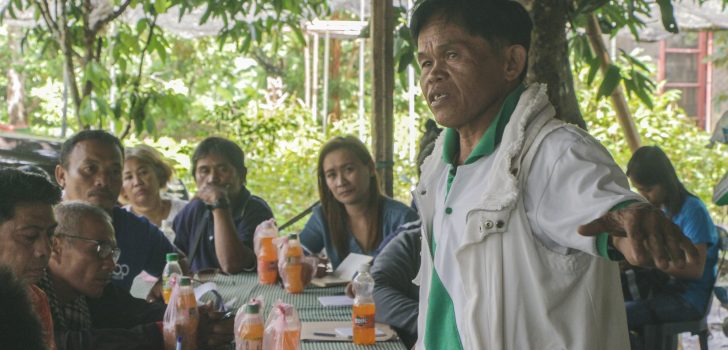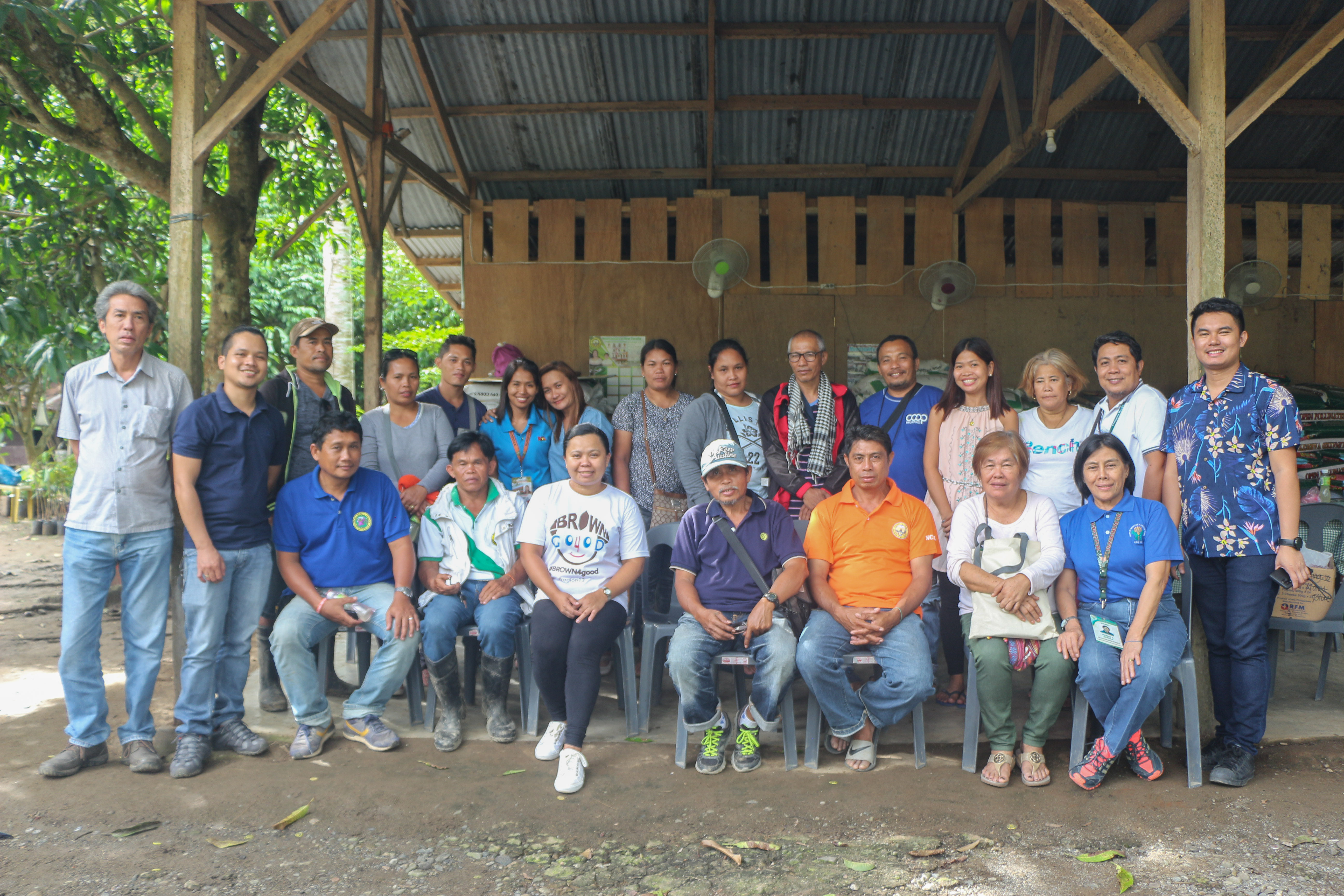 FGD. One of the participants from New Corella shares his struggle regarding the low buying price of cacao beans. (Photo by Joy M. Montecalvo)
FGD. One of the participants from New Corella shares his struggle regarding the low buying price of cacao beans. (Photo by Joy M. Montecalvo) DavNor Farmers take part in Cacao Value Chain Assessment
The Department of Agriculture- Philippine Rural Development Project’s (PRDP) Project Support Office Mindanao (PSO Mindanao) and Regional Project Coordination Office 11 (RPCO 11), in collaboration with the National Project Coordination Office (NPCO) conducted a “Cacao Value Chain Assessment” in Tagum City last July 23-26, 2019.
Value Chain Analysis (VCA) is one of the valuable innovations of the Department of Agriculture-Philippine Rural Development Project (DA-PRDP) that provides farmer-entrepreneurs relevant inputs to identify and develop the linkage and interrelationships of a whole chain of activities for a particular commodity.
Cacao farmers from the municipalities of San Isidro and New Corella took part in the four-day activity by sharing their valuable insights during the Focus Group Discussion. The FGD tackled the different aspects of the value chain analysis from input provision, farming and production, post-harvest, processing, marketing, and institutional relationship.
“This activity presents the changes in the value chain of the subject agri-fishery commodity (industry-wide) that have taken place during the two periods or scenarios like situations in the chain as expressed in the VCA; and at present with various interventions already put in place,” said M&E Unit Head Joseph Rico.
Based on the initial assessment, they still have sufficient supply of seedlings and now they wanted to shift their focus on the production enhancement.
Some of the challenges they encountered during the seedling distribution include the high mortality rate due to improper handling of seedlings, some seedlings are not of quality also, there’s no tagging of variety which makes it hard for them to identify the variety during delivery, and sometimes the time of delivery is not deal for planting season.
Farmers are also facing challenges when it comes to access to fertilizers and pesticides which for them is costly. If they would shift to organic fertilizer it would also require additional labour and it would take time to process. That’s why they wanted to address this issue because most of them don’t have allocation for fertilizer or rehabilitation of their soil.
They are also now starting to adopt some Good Agricultural Practices where they prioritized those practices that directly affects production enhancement. They also adopted climate resilient farming system to fight the unpredictable weather condition brought by climate change. Aside from cacao, some of the farmers said that they practice intercropping in their farms for additional source of income.
Another aspect that farmers need to be equipped is on keeping a track record of their expenses from land preparation, planting, to harvesting since most of them have no basis whether a certain price given by a buyer is favorable for them.
Currently, they sell their cacao as wet beans and some of them sell dried beans. They are starting to see the advantages of fermenting cacao beans because it produce quality tablea (aromatic and with better taste) though there are still issues with low buying price on fermented dried cacao beans.
Another limitation for the farmers is the lack of post-harvest facilities like dryer and fermentary facilities that will help them achieve a quality fermented beans.
As to the market, they shared that they have limited market and most of them sell it in Tagum City where most traders offer low buying price. What they want is to have link to proper market and maybe have a standard buying price for cacao beans. They also look forward to having training that will help them develop the entrepreneurial mindset.
All these information gathered from the focus group discussions and plenary sessions will be used to evaluate the interventions made in consideration to the Value Chain Analysis (VCA) and the Provincial Commodity Investment Plan (PCIP) of cacao in the region. (Joy M. Montecalvo with reports from I-PLAND/M&E)


